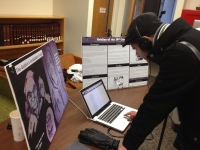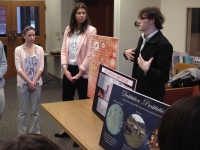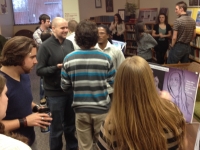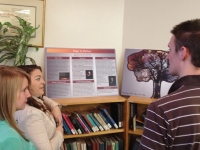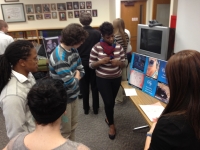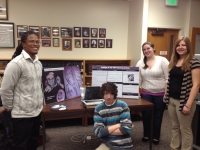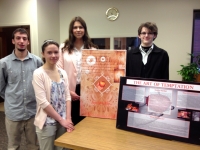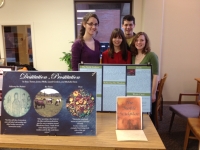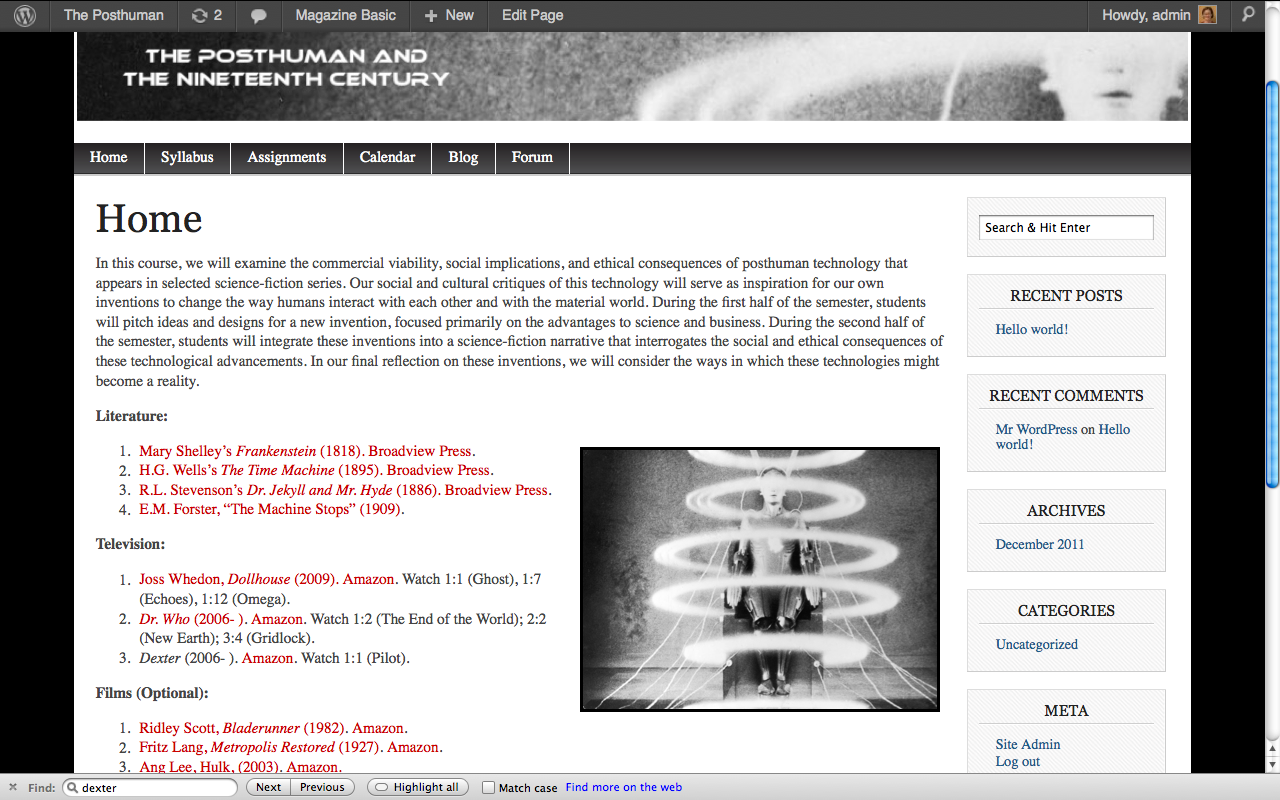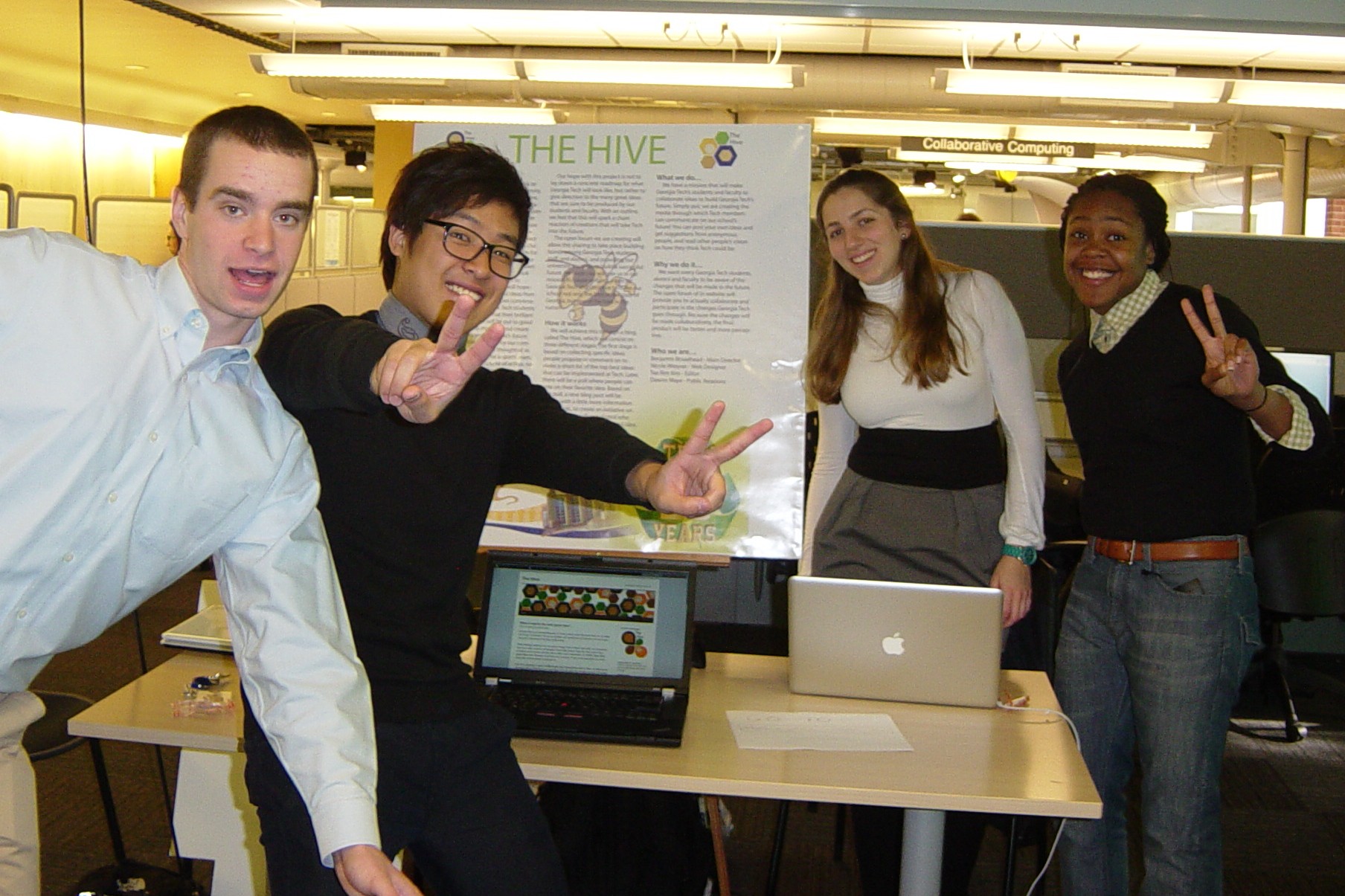I have had great success with the following in-class activity when discussing assigned readings, images, or videos.
1. Ask basic, generative questions at the beginning of class in the large group, and list responses on the whiteboard.
- Promote short-answer responses by asking questions such as: “identify major terms or keywords in the text,” “identify modes of communication used,” “what are some types of X that we see in our own lives?”
- Use this brief activity as a way to gain a sense of students’ grasp of the text. Also use this opportunity as a way to pull together a basic understanding of the text.
2. Break into small groups with specific roles (during the first session, introduce these roles; during the second session, have students identify and describe the roles for you).
- Moderator: keeps the conversation going, asks follow-up questions, encourages every group member to actively participate
- Responder: provides a ready answer to every question
- Challenger: challenges the responder, seeks new ways of looking at the material, asks probing questions
- Reporter: keeps track of the discussion, asks clarifying questions, records the discussion in a document, presents the material to the class or instructor
3. Ask 4-6 questions that move from “old knowledge” to “new knowledge.” Always start with easy, familiar, and provocative questions to get students comfortable and excited about the text.
- Ask questions one at a time by writing them on the whiteboard at intervals. This tactic allows you to moderate how much time each group spends discussing each question.
- Actively listen in on group discussions. Are they performing their roles correctly? Are they responding as you expected? Do you need to tweak your next question to get them on the right track?
4. Have students wrap-up their discussions with conclusions that summarize the themes and big ideas unraveled during their discussion.
- When there’s time, ask the reporter to share the group’s conclusions with the class.
- When time runs out, ask the reporter to submit a copy to you (be sure to specify that the notes are to be typewritten, not handwritten!)
5. Reflect. What was your objective? Did you meet it? Should you use this text again? How could you improve the activity? Record your notes in an annotated syllabus for future reference.
